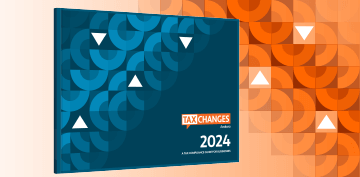Unusually special districts – Wacky Tax Wednesday
Auditors in Lawrence, Kansas are puzzling over a small special tax district that appears to have generated more than $2 million, including about $430,000 in sales tax rebates, for the local development group that built the hotel located in the district.
The facts being revealed tell a rather strange tale. The taxing district apparently allows The Oread Hotel’s private developers “to keep a large amount of the sales taxes generated at The Oread to pay for parking and other infrastructure improvements” — part of a tax incentive for The Oread. Furthermore, an agreement between the city and the developers tasks the firm with assisting the city “in evaluating the sales and use transactions, receipts and reimbursements connected to The Oread Hotel’s Tax Increment Financing District.” Finally, the firm is supposed to inform the city about “any material errors, fraud or illegal acts that are found during the evaluation” (Lawrence Journal).
A business oversees taxing and polices itself? That seems unorthodox. But is it unusual?
Now that’s funny
There does seem to be something inherently unusual, even absurd, about special tax jurisdictions — so much so that John Oliver felt compelled to comment on them not too long ago. In the midst of the presidential primary, Oliver put mocking candidates aside to focus on “one of the smallest and most obscure forms of government: special (taxing) districts.”
Oliver describes them as “small units of government with the power to take tax dollars to do one specific thing.” They can be set up for almost any purpose — most familiarly, fire and school districts.
According to Oliver, “There are about 40,000 tax jurisdictions in the country, accounting for more than $100 billion a year of spending.
[That’s] $16 billion more than Russia spends on its military.” That’s a little unnerving, but not as unnerving as this:
“Special districts are so ubiquitous and sometimes have so little accountability, states may not even know how many they have or how much they spend.”
Oliver tells viewers that when Idaho launched a special investigation on special districts a few years back, its main objective was to “identify how many special districts there are in Idaho.” And in Kentucky in FY 2011, an audit found that “40% of special districts that were required to submit budgets did not.” Perhaps even more troubling, the auditor revealed, “Many types of districts may continue to exist because there is not a process for them to be dissolved.” A report on special districts in Nassau County, New York revealed that it was very difficult to even obtain accurate information about the special districts.
Help wanted: tax fraud
I was most disturbed by the revelation that some special districts hire people to serve both as election officials and voters. There’s even a company in Texas devoted to finding these people and setting them up in temporary homes. Help wanted postings for this type of job read as follows:
“Help wanted: Voter for single-vote election. Eligible tenants will vote in and serve as election officials for the … election which takes place in the home.”
It’s worth watching the John Oliver piece, if for no other reason than to see the “almost heartbreaking” footage of a New Hampshire special district public meeting. Seeing it will restore your faith in humankind, if not special districts. Watch it here.
Unusual, unorthodox, or honest — special districts complicate sales and use tax compliance for taxpayers doing business in them. One address can be in multiple special jurisdictions, each with its own rate and rules. Sales tax software (SaaS) helps businesses discern the proper rates and apply the proper rules for each and every transaction. Learn more.

Avalara Tax Changes 2024: Get your copy now
Stay ahead of 2024’s biggest tax changes with this comprehensive, compelling report covering seven industries.
Stay up to date
Sign up for our free newsletter and stay up to date with the latest tax news.












